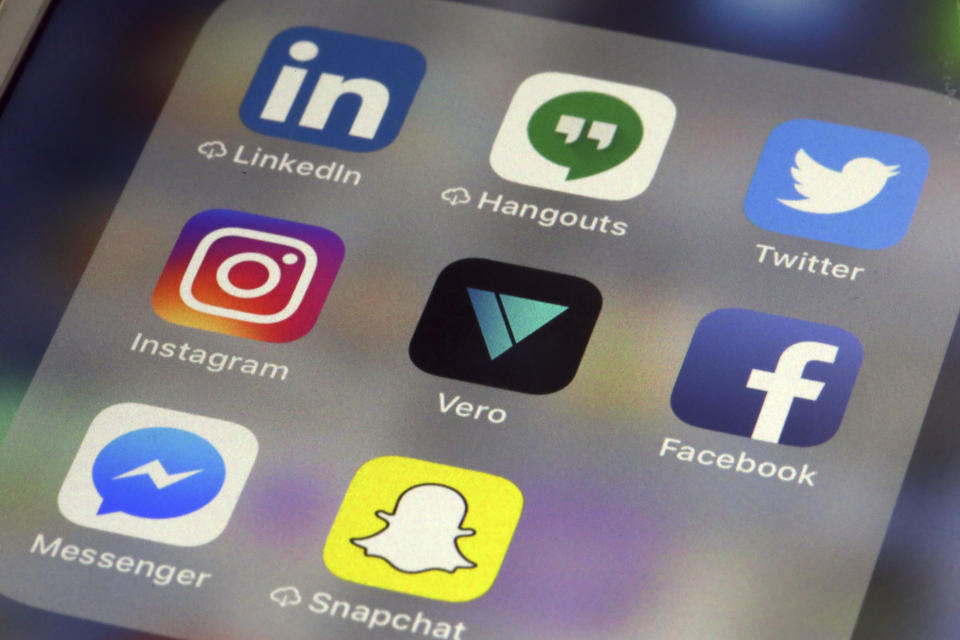Imagine Facebook without the ads but with a monthly fee
What if there was a social media platform that had no ads, but you’d have to pay a monthly fee. Would you sign up?
It’s an interesting and salient question given all of Facebook (FB), YouTube and Twitter’s (TWTR) foibles. By now we all know these social media giants are free only in the sense that, you, the end consumer, don’t pay directly for the service. As the old line goes, when something is free, you are the product.
Advertisers pay to use these platforms, so it sure isn’t free for them. And Facebook has infamously monetized our data in myriad and disturbing ways. Never mind all the other impossible to quantify costs to society, like Russian trolls undermining our elections and national institutions from the Supreme Court to the NFL. (And there’s the fact that studies show increased use of social media has led to increases in collective social anxiety.)
Mark Zuckerberg has proudly defended what he says are the great benefits that Facebook provides to society by being free. But if you look closely, I’m not so sure it’s a tradeoff that works in our favor.
So is a paid social media platform feasible? “Of course it is,” says one of Silicon Valley’s leading investors. “People went from free TV to cable.” And of course ad-free networks, like HBO work quite nicely in this media. But, this investor says, Facebook and Google in particular make it hard for social media subscription start-ups to get funding, or if they did, the goliaths would just buy them and kill them.
Still there are some companies trying to make it work.
One is Vero, an Instagram-like app that surged in popularity on the app store at the beginning of the year. Vero is free for now, but CEO Ayman Hariri, a Saudi billionaire who’s funding the company out of his own pocket—note no Silicon Valley VC money—says that he will begin charging a subscription of somewhere around the cost of “a couple of cups of coffee” a year for new members sometime in the first half of 2019.
“You are buying freedom from the ads and the data mining [the other social networks have],” Hariri told me. “We are establishing a transparent relationship between the user and the platform.”

Hariri says that Vero—which he says has some 4.5 million users—proactively removes hate speech. Some users have complained however about Vero’s bugginess and opaque terms of service, as well as Hariri’s ties to his family’s construction firm Saudi Oger which closed down in 2017 due to charges of mismanagement and corruption. Of course there are those in Silicon Valley who have a vested interest in spreading those stories. So who knows if Vero will work out.
Strava, a freemium platform, benefits from targeting a specific market, in this case people who work out. Strava has 35 million members who share info on their swims, bike rides and runs with fellow followers. You can use the app gratis or pay $2.99 a month or $23.99 annually for individual packs of service —or a bigger fee for all the bundles. Strava’s CEO, James Quarles, says the company has what he calls sponsorships from companies like New Balance and Lululemon that have promotions tied to athletic experiences, but no ads per se.
What about selling user data? “Absolutely not,” he says. “We are often approached [but] we don’t believe in selling data, we never have.” Why not, it’s a good way to make money, right? “Because we don’t believe in short termism,” Quarles says. “We’re trying to build the next great sports brand.”
So maybe subscription social networks will become a thing. Maybe not. I know if I could go back in time and choose to pay for a social network directly as opposed to using Facebook et al and incurring its myriad hidden costs, I’d pick the former.
It could also be that social networks will morph from free for consumers to subscriptions in the same way that many news sites which were once free, now change consumers directly. Just don’t count on Silicon Valley to provide the funding for any endeavor like this. At least not yet.
NOTE: A previous version of this said WashPost is a partner of Vero’s. It is not.
—
Andy Serwer is editor-in-chief of Yahoo Finance. Follow him on Twitter @serwer
Read more:

 Yahoo Finance
Yahoo Finance 

